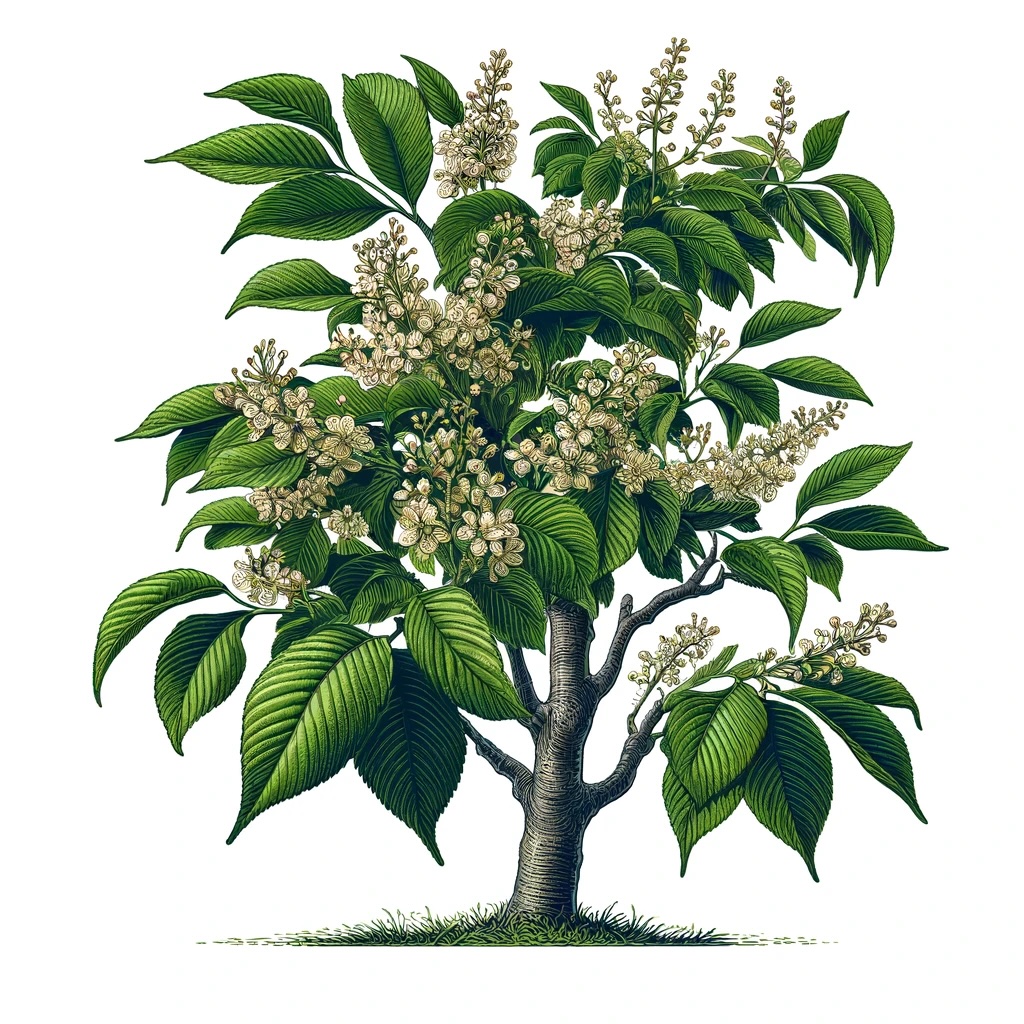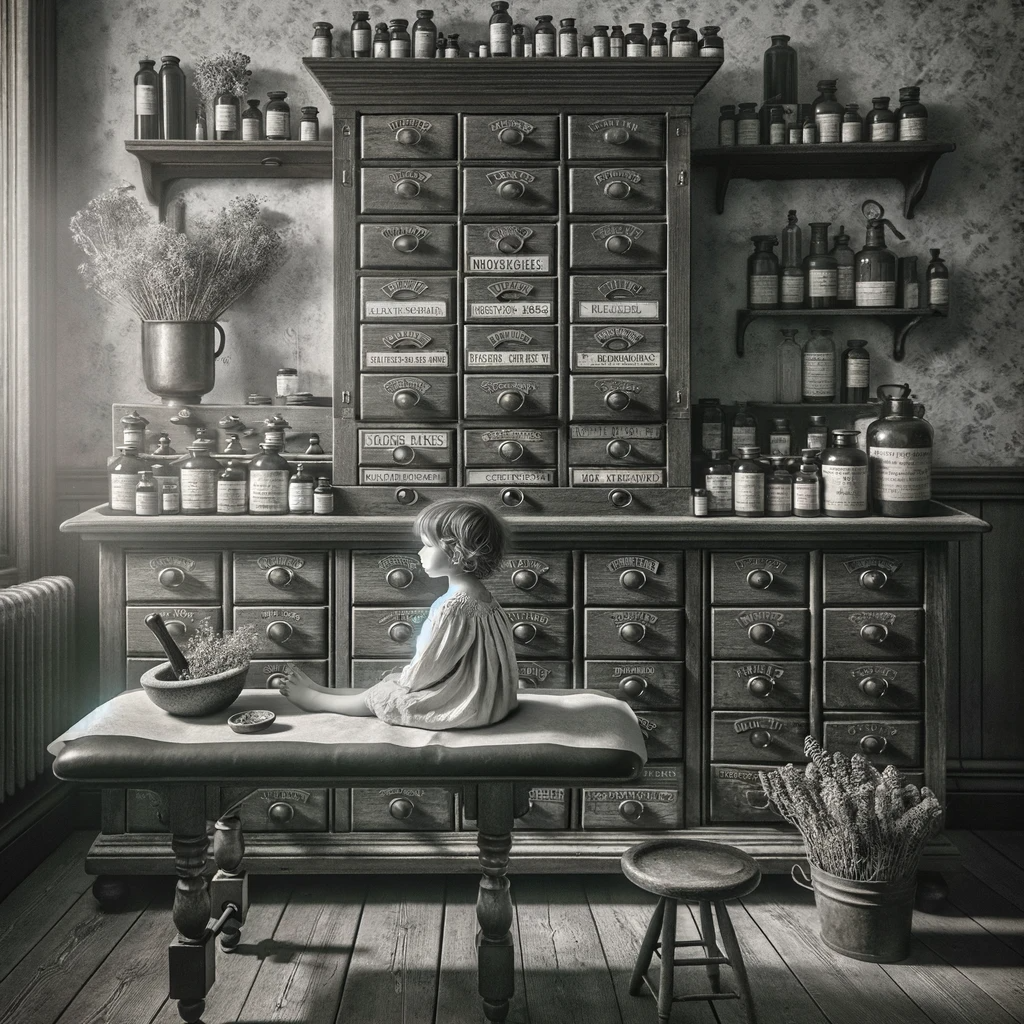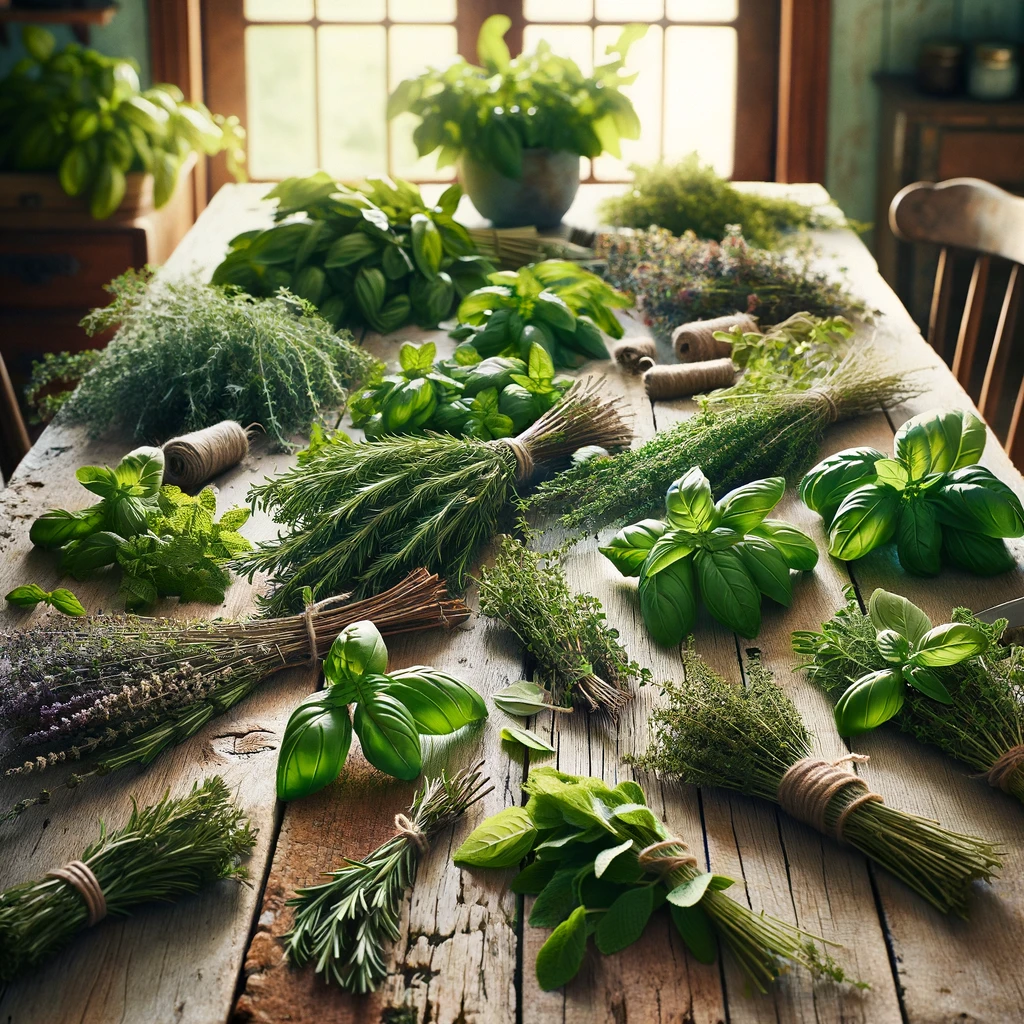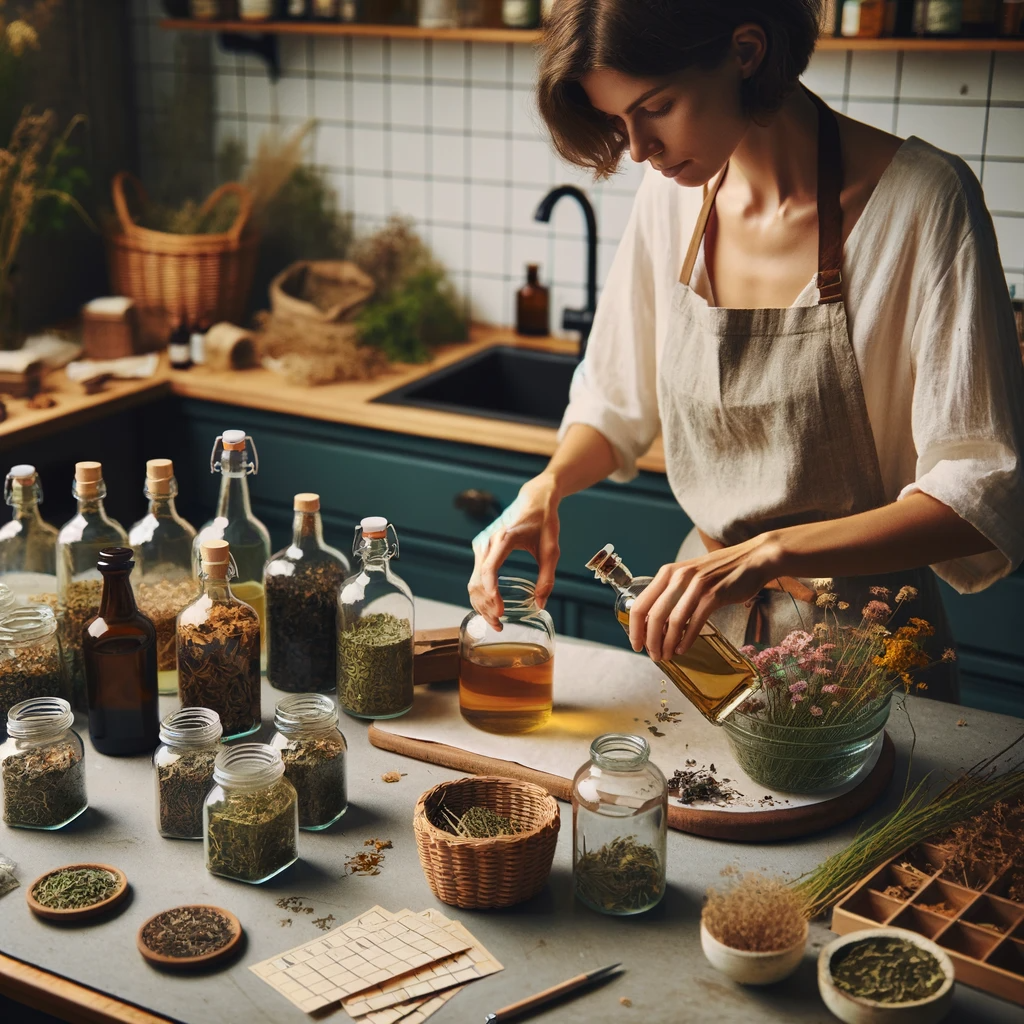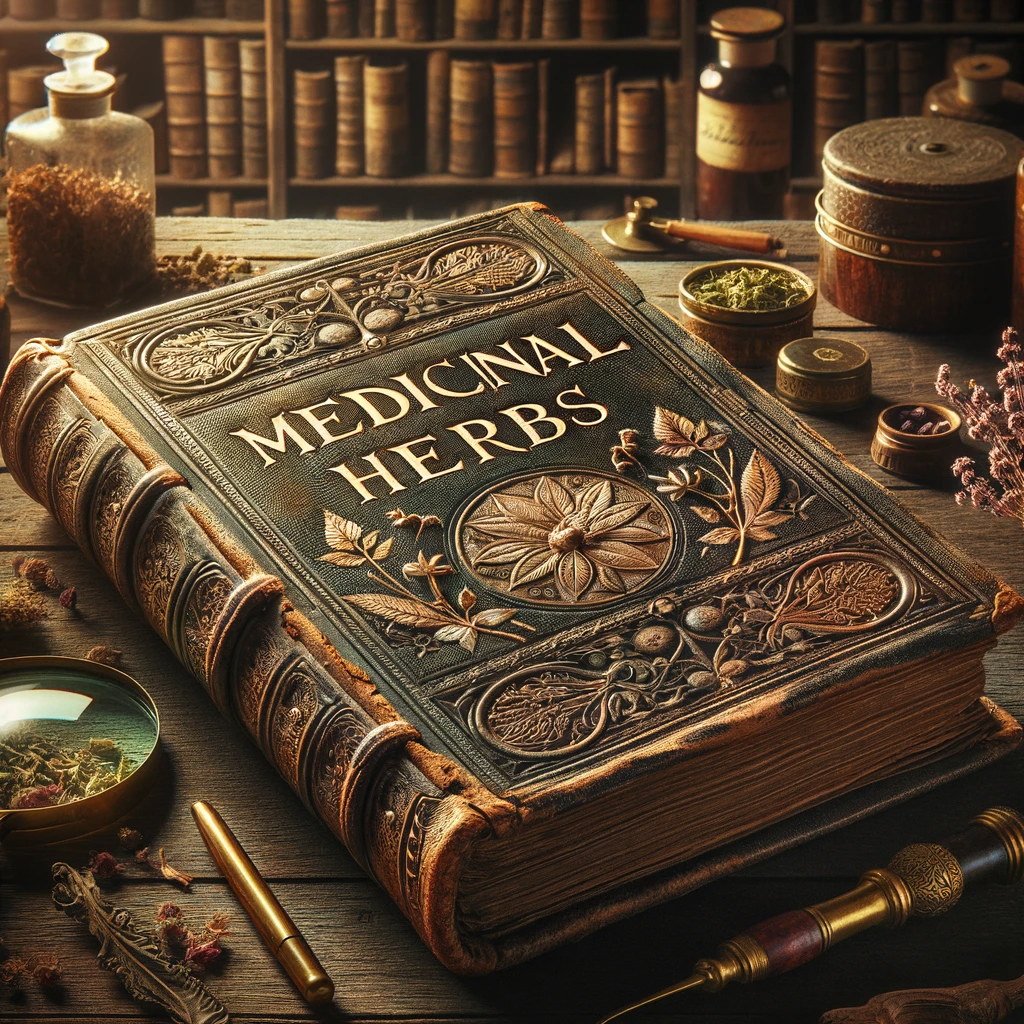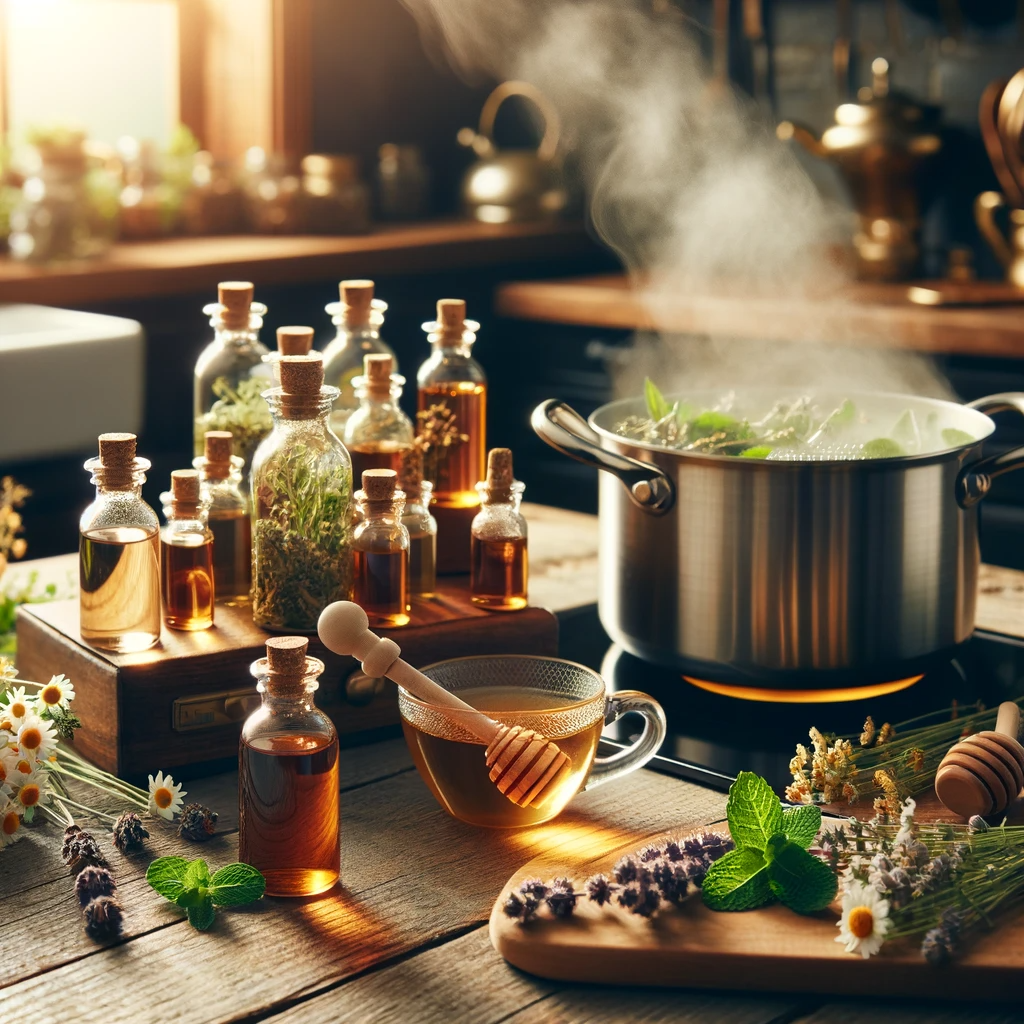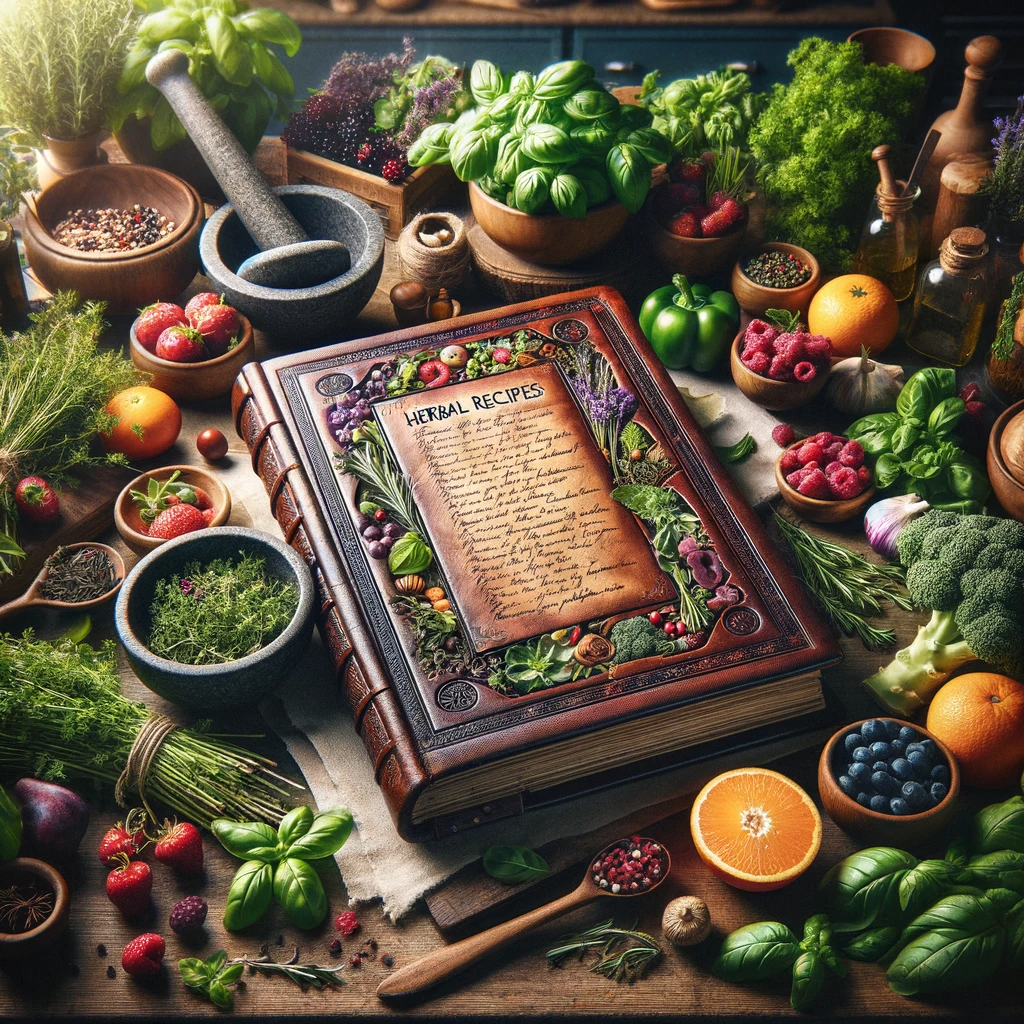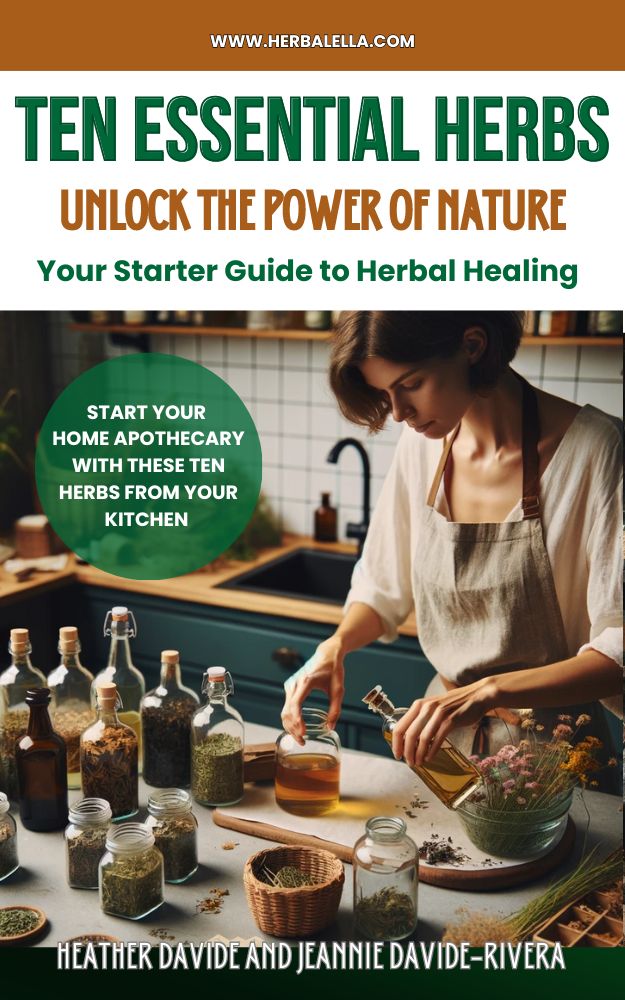This website contains affiliate links for products I use and love. If you take action (i.e. subscribe, make a purchase) after clicking a link, I may earn some tea money, which I promise to drink while creating more helpful content like this.
- Home
- Index of Topics
- Where to Begin
Home Apothecary: Embracing Natural Wellness in Your Own Space
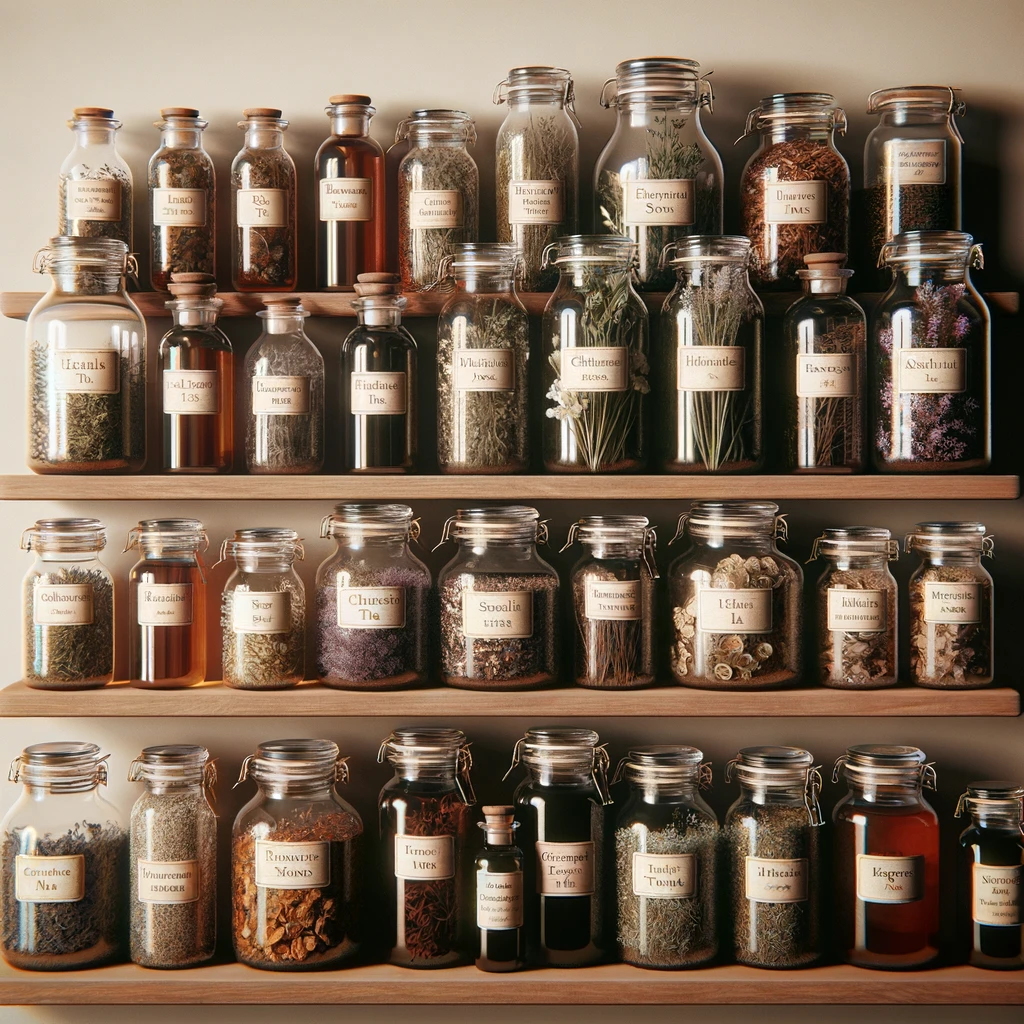
Introduction to Home Apothecary
In recent years, the concept of a home apothecary has gained significant traction among those seeking a more natural, holistic approach to health and wellness. This resurgence of ancient practices brings the power of herbal medicine into the modern household. A home apothecary is essentially a collection of natural remedies, herbs, and tools used to promote health and treat common ailments. Its rising popularity is a testament to the growing interest in sustainable, self-reliant living and the desire to reconnect with nature's healing properties.
Setting Up Your Home Apothecary
To begin your journey into herbalism, setting up your apothecary is a crucial first step. Essential tools include jars for storage, a mortar and pestle for grinding herbs, and a selection of base ingredients like oils and beeswax for creating salves and balms. Choosing the right space is equally important; it should be dry, cool, and away from direct sunlight to preserve the potency of your herbs.
Herbal Essentials for Your Apothecary
A well-stocked home apothecary contains a variety of herbs, each with its own unique properties and uses. Lavender for relaxation, chamomile for its calming effects, and echinacea for immune support are just a few examples. While growing your own herbs adds a personal touch to your apothecary, purchasing from reputable sources is a convenient alternative.
Creating Natural Remedies
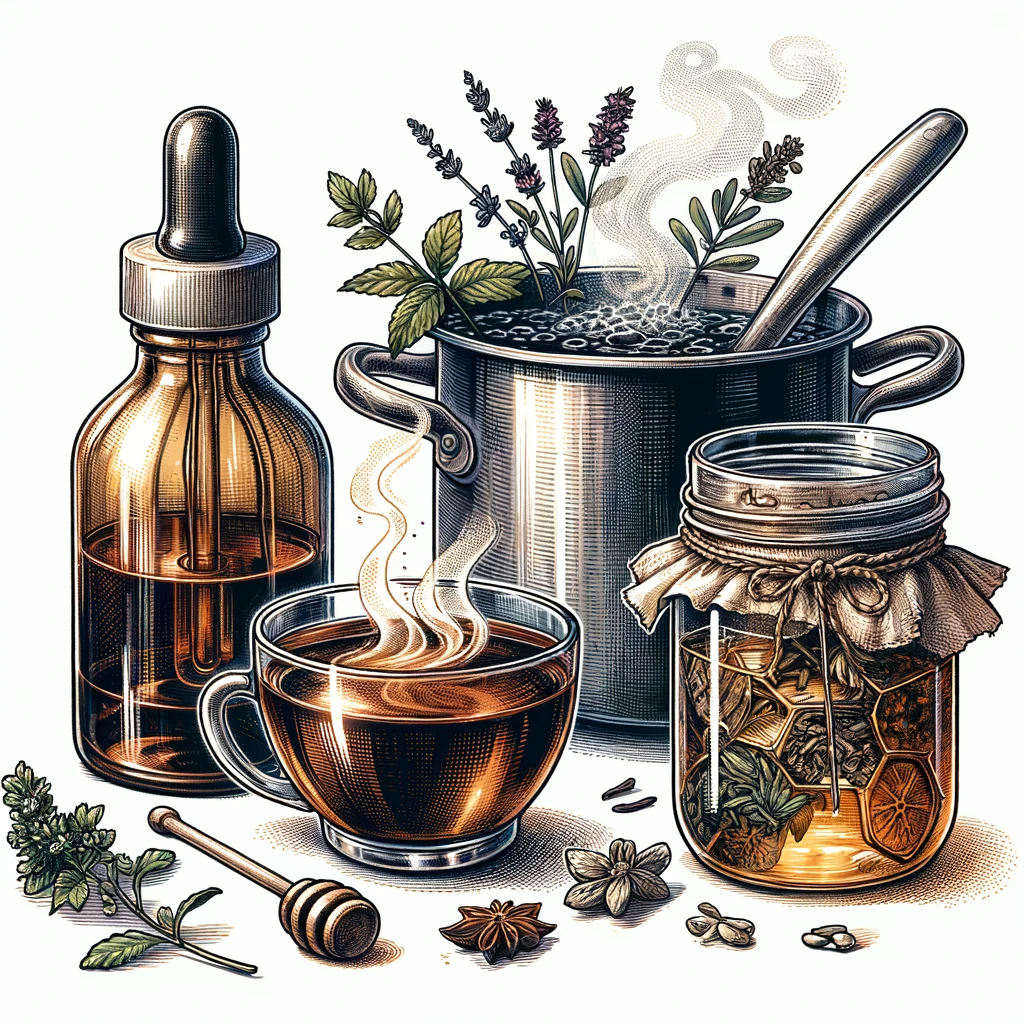
Homemade herbal tinctures, infusions, salves, and oils are the cornerstone of any home apothecary. These preparations harness the therapeutic properties of herbs and offer a hands-on approach to natural healing. Simple recipes can be easily followed to create effective remedies for a variety of needs.
The Art of Herbal Tea Blending
Blending herbal teas is both an art and a science. Understanding the flavor profiles and health benefits of different herbs allows you to create custom blends tailored to specific needs, whether it's a soothing nighttime brew or a tea to aid digestion.
Home Apothecary for Common Ailments
Your home apothecary can be a source of relief for common ailments like digestive issues and skin concerns. For instance, peppermint and ginger are excellent for soothing upset stomachs, while calendula and aloe vera are renowned for their skin-healing properties. By understanding the properties of each herb, you can create natural, effective treatments.
Sustainable Practices in Apothecary
Sustainability is a key aspect of a home apothecary. Ethically sourcing herbs, either by growing them yourself or buying from responsible suppliers, ensures the longevity of your practice. Moreover, using eco-friendly packaging and storage solutions not only benefits the environment but also maintains the quality of your herbal products.
Integrating Apothecary into Daily Life
Incorporating herbal remedies into your daily routine can enhance overall wellness. Simple practices like starting your day with a herbal tonic or unwinding with a relaxing herbal bath can make a significant difference in your health and well-being.
Safety and Precautions
While natural remedies are generally safe, understanding dosages, potential interactions with medications, and when to seek professional advice is crucial. This ensures that your home apothecary is a source of healing, not harm.
Preserving and Storing Herbal Products
Proper preservation and storage are vital for maintaining the potency and effectiveness of your herbal products. Techniques like drying, freezing, or using alcohol in tinctures extend the shelf life of your herbs. Organizing and labeling your creations is also essential for easy access and usage.
Community and Learning Resources
Engaging with a the Herbal Ella and your local community of herbalists and exploring books and online courses can greatly enhance your knowledge and skills. This not only helps in refining your practices but also connects you with like-minded individuals passionate about herbalism.
Home Apothecary for Children and Pets
Creating safe, natural remedies for children and pets is another aspect of home apothecaries. Using gentle herbs and appropriate dosages ensures the well-being of your entire family, including the furry members.
Advanced Techniques in Home Apothecary
For those looking to deepen their practice, exploring advanced techniques like creating herbal extracts and syrups or specialized blending for specific conditions can be rewarding. This allows for more personalized and potent remedies.
FAQs About Home Apothecary
- How do I start a home apothecary?
- What are some must-have herbs for beginners?
- Can I use home remedies for my children?
- How do I store my herbal preparations?
- Are there any risks associated with herbal remedies?
- Can I make my own herbal teas?
How do I start a home apothecary?
To start a home apothecary, begin by selecting a dedicated space in your home that is dry and away from direct sunlight. Gather essential tools like jars, a mortar and pestle, and a teapot or infuser for herbal teas. Start with a few well-known herbs like lavender, chamomile, and peppermint. Educate yourself on each herb's properties and uses, and gradually expand your collection as you gain confidence and knowledge.
What are some must-have herbs for beginners?
For beginners, it's ideal to start with herbs that are versatile and commonly used. Some must-have herbs include:
- Lavender for relaxation and sleep aid.
- Chamomile for its calming and digestive properties.
- Peppermint for digestive health and as a natural decongestant.
- Echinacea for immune support.
- Calendula for skin health and healing.
Can I use home remedies for my children?
Yes, you can use home remedies for children, but it is crucial to ensure the herbs are safe for children and to use appropriate dosages. Herbs like chamomile and lavender are generally safe for children. However, always consult a pediatrician before introducing any new herbal remedies, especially for infants and toddlers.
How do I store my herbal preparations?
Herbal preparations should be stored in a cool, dark place to preserve their potency. Use airtight containers, preferably made of dark glass, to protect them from light and moisture. Label each container with the herb's name, preparation date, and any specific instructions for use. For dried herbs, ensure they are completely dry before storing to prevent mold.
Are there any risks associated with herbal remedies?
While herbal remedies are generally safe, they can interact with medications and may not be suitable for everyone, such as pregnant women or individuals with certain health conditions. It's important to research each herb, understand its effects, and consult a healthcare professional, especially if you're taking other medications or have health concerns.
Can I make my own herbal teas?
Absolutely! Making your own herbal teas is a rewarding aspect of having a home apothecary. Start by mixing dried herbs in a teapot or infuser, experimenting with different blends to suit your taste and health needs. Common blends include peppermint and ginger for digestion, chamomile and lavender for relaxation, or a mix of echinacea, lemon, and honey for immune support.
Embracing the home apothecary lifestyle is a journey towards natural, self-sufficient health care. It empowers individuals to take control of their well-being, using the gifts of nature in a sustainable and respectful manner. Whether you're a beginner or an experienced herbalist, there's always something new to learn and explore in the world of herbal medicine.
Our favorite Herbal Apprentice Subscription Box - Great for Beginners!

READ NEXT:
Setting Up Your Home Apothecary: Essential Tools and Equipment
Essential Herbs for Your Home Apothecary
Creating Natural Remedies: Preparing Herbal Tinctures and Infusions
MORE FROM Herbal Ella:
What is Herbalism? A Beginners Guide.
Stay in touch and receive all our latest updates!
The information provided on this website is for educational purposes only, and is not FDA approved. It is not to be considered health advice. Always do your own research and seek the guidance of a qualified healthcare practitioner before working with any herb. Herbal Ella is not liable for any action or inaction you take with the materials and information provided. Read here for more information.
Recent Articles
-
Wild Cherry Monograph: Wild Cherry: Nature's Respiratory Ally
May 02, 24 04:52 PM
Discover the healing potential of Wild Cherry with our comprehensive monograph. Explore its benefits and uses for respiratory health. -
DIY Herbal Remedies for Respiratory Health
May 02, 24 03:46 PM
Explore easy DIY herbal remedies for respiratory health with Herbal Ella. Learn to make teas, tinctures, and more to breathe better naturally -
Understanding the Respiratory System - Anatomy and Functions
May 02, 24 03:23 PM
Discover the respiratory system's anatomy and functions with clear visuals and simple explanations to keep you breathing healthily
* Privacy Policy * Disclaimer *

